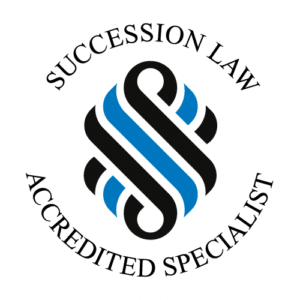Frequently asked questions by our clients
Why choose a Robbins Watson Estate Solicitor?
Our team of expert estate lawyers is led by one of a handful of inheritance law specialists in Queensland. Christine Smyth is a Queensland Law Society (QLS) Accredited Specialist in Succession Law. No other Gold Coast law firm has anyone more highly recognised by their peers in this specialist field. From the drawing of a simple will, advising as to your estate planning needs, to assisting you to resolve complex will disputes, our team of highly qualified and experienced Gold Coast estate lawyers are experts in addressing all of your inheritance law needs. Robbins Watson Solicitors are here to help, providing peace of mind through a comprehensive Inheritance Law service.
Choosing a probate lawyer who knows the issues, the problems and the solutions is the best way to ensure that everything is addressed from the start, and probate issues smoothly.
Robbins Watson’s estate lawyers do this all day, every day.
When a Robbins Watson estate lawyer is engaged to assist in estate administration, we act to administer the estate as quickly as it may safely be done – while protecting the executor against the many pitfalls.
Our estate lawyers look for safe, sensible solutions to the issues that arise, and ensure that, where you have to make a choice, you are given all your options, with our recommendation about which option is best for you.
Our commitment to streamlining our estate administration while maintaining a sense of personal service and understanding has seen us become the estate lawyers Gold Coast families choose to help them navigate this difficult task.
Book a free estate administration initial consult with one of our expert probate solicitors today.
What is Probate?
“Probate” is a court order which officially recognises the validity of the will and the appointment of the executor named in the will. It is obtained by a formal process of proving and registering the will with the Supreme Court.
Probate is a vital first step in most estate administrations, as it gives the Executor:
-
a court order validating the will, with legal and enforceable rights to administer the estate
-
legal rights to access the deceased’s bank accounts and other asset holding companies and organisations
-
legal rights to sell or transfer estate property – including real estate
-
the authority necessary to deal with the ATO, including lodging tax returns for the deceased personally, and if necessary the estate
-
protection of the Court from personal liability for proper actions taken as executor
Book a free estate administration initial consult with one of expert Estate Administration Solicitors today.
What is intestacy?
The law of intestacy applies when a person dies without a valid will. It also applies when a person makes a valid will but fails to properly distribute some or all of their assets, which is known as a partial intestacy.
If a person dies intestate, their estate or the part of it they failed to properly distribute is divided between their next of kin, with the precise distributions varying from state to state. If there are no surviving next of kin, the estate passes to the State Government.
Intestacy is an unfortunate consequence of inadequate estate planning and can produce very harsh results, particularly in blended families or when parties have separated but not divorced.
Our award-winning Wills & Estates Team are very experienced in dealing with intestacy and will guide you through the process.
Book a free estate administration initial consult with one of expert our Estate Administration Solicitors today.
What are Letters of Administration?
If a person dies without a will or if their will does not include a valid executor appointment, the court will not make a grant of probate. Rather, the person wishing to administer the estate will be required to apply to the Supreme Court for a grant of Letters of Administration.
The application process is similar to a probate application; however, it is usually more complex, and the tasks required to satisfy the Court are more onerous.
There is also increased scope for a dispute, as there are often various persons (e.g. siblings) who are equally entitled to apply for Letters of Administration, but who hold very different views about how the estate should be administered. Or, they may simply dislike and distrust one another. This can be very unpleasant and may lead to a contested application for Letters of Administration, which is expensive, time-consuming, and incredibly stressful.
Our award-winning Wills & Estates Team are very experienced in dealing with applications for Letters of Administration and will guide you through the process.
Book a free estate administration initial consult with one of expert Estate Administration Solicitors today.
Contested Wills and Estates

Why choose Robbins Watson Solicitors?
Discover what makes us different.
Experience you can count on
With over 60 years in business, we position our clients and their businesses with the best advice to enable them to prosper.
We’re committed to you
We recognise your needs, assess specific priorities and objectives and develop strategies to meet them.
Enduring relationships
We generously invest time and expertise to understand our clients and build beneficial long-term relationships.
Efficient teams
We embrace technology to ensure our clients outcomes are delivered quickly, efficiently and cost-effectively.
What our clients have to say
Ready to talk ? Book an initial consultation.
We can discuss your case and identify how we can work with you to achieve the best possible outcome.
Send us an enquiry Schedule an appointment
or call a trusted advisor today
+61 7 5576 9999






